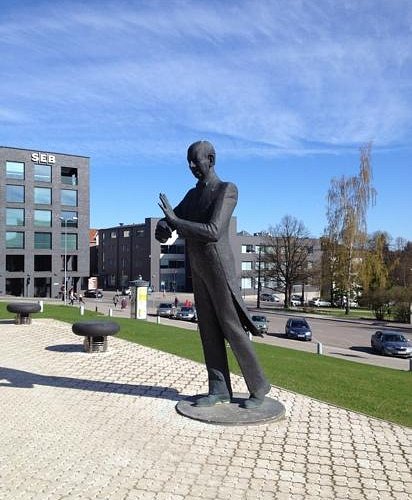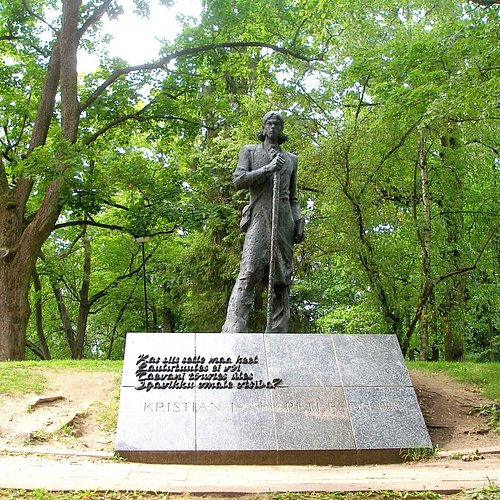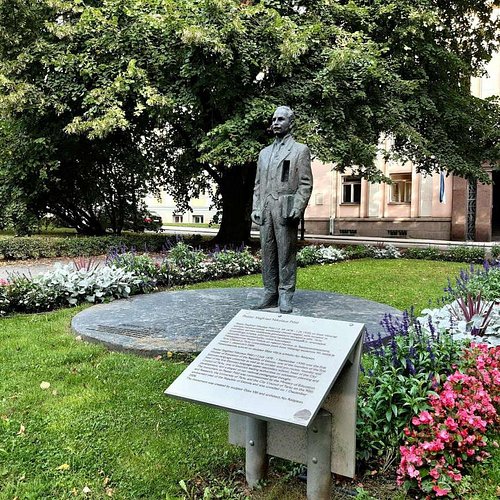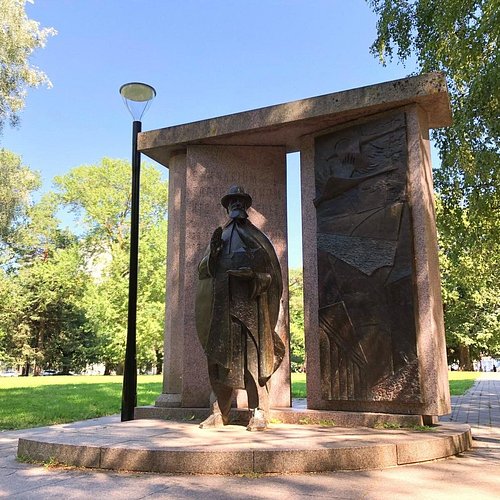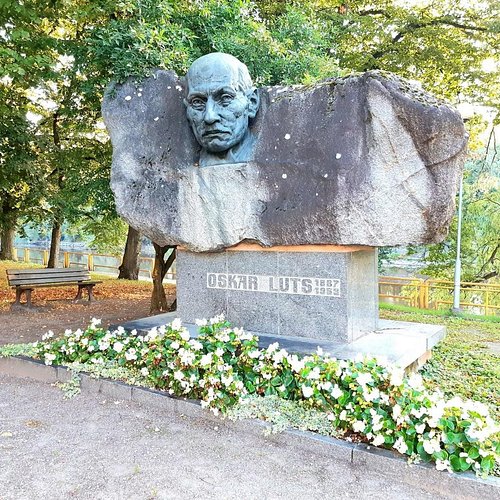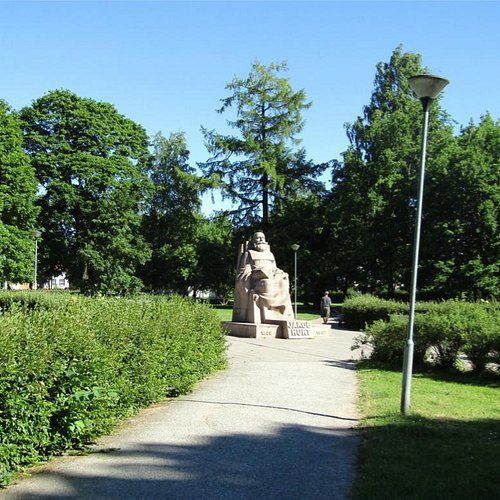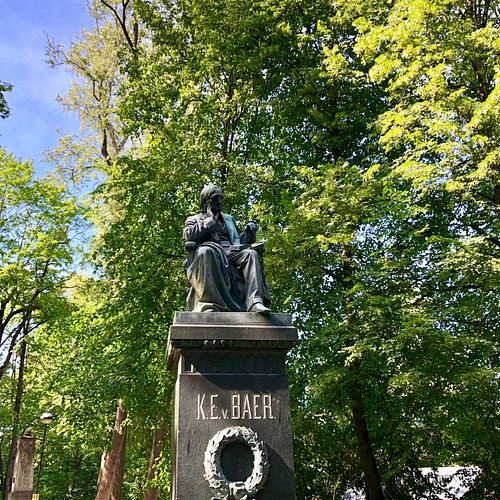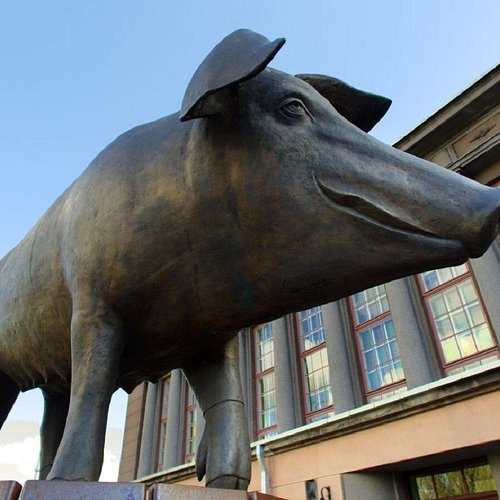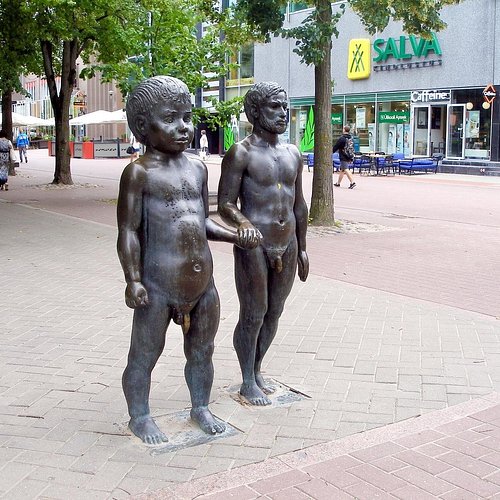Top 10 Monuments & Statues in Tartu, Tartu County
Tartu (Estonian pronunciation: [ˈtɑrtˑu], South Estonian: Tarto) is the second largest city of Estonia, after Estonia's political and financial capital Tallinn.
Restaurants in Tartu
1. Monument to Eduard Tubin
Overall Ratings
4.5 based on 19 reviews
The monument to the most renowned Estonian symphonist of all times Eduard Tubin stands on the slope by the Vanemuine Theatre (authors A Vahtrapuu, V Valk, sound installations created by Louis Dandrel). Come and see how the well-known Estonian conductor and composer conducts an imaginary orchestra and listen to sound installations of the works of Eduard Tubin.
2. Monument to Kristjan Jaak Peterson
Overall Ratings
4.5 based on 36 reviews
The monument to Kristjan Jaak Peterson (1801-1822) was completed in 1983. Its authors are J Soans and A Murdmaa. Kristjan Jaak Peterson (14.03.1801 – 04.08.1822) was an Estonian writer. He studied in the Faculty of Theology and Philosophy of the University of Tartu from 1819 to 1820. He called himself a singer of the country people, appreciated the national features of literature and thought that the creation of original Estonian literature was possible. About twenty-five of his poems are known.
3. Monument to Peeter Pold
Overall Ratings
4.5 based on 9 reviews
The monument to Peeter Põld (1878-1930), the first Minister of Education of the Republic of Estonia and the founder of the national university, was opened in front of the Ministry of Education and Research on 1 December 2008. The authors of the monument are sculptor Ekke Väli and architect Ain Rööpson.
4. Monument to Hugo Treffner
Overall Ratings
4.0 based on 2 reviews
The monument to Hugo Treffner is located on the bank of the Emajogi River in the western part of Ulejoe Park, at the former site of the Hugo Treffner private school. The authors of the monument are sculptor Mati Karmin and architect Tiit Trummal.
5. Statue of Oskar Luts
Overall Ratings
4.0 based on 11 reviews
The monument to Oskar Luts (1887-1953) was erected in 1987. The authors of the monument are A Rimm and A Murdmaa.Oskar Luts (1887-1953) was an Estonian writer. His best known and loved novel is “Kevade” (“Spring”), a lyrical and humorous tale based on school memories. He has also written plays, children’s stories, memoirs and satire. The house museum of the writer is located at Riia 38 in Tartu – he lived at this address for the last 17 years of his life. Oskar Luts is buried in the St Paul’s Cemetery in Tartu.
6. Monument to Jakob Hurt
Overall Ratings
4.0 based on 5 reviews
Jakob Hurt (22.07.1839-13.01.1907) was an Estonian folklorist and linguist. He studied theology in the University of Tartu and gained his Doctor of Philosophy degree from the University of Helsinki in 1886. He played the leading role in many major events of the Estonian national movements.The monument to Jakob Hurt (1839-1907) was completed in 1994. Its authors are J Soans and R Tomingas.
7. Monument to Karl Ernst Von Baer
Overall Ratings
4.0 based on 30 reviews
Karl Ernst von Baer was a biologist, the founder of descriptive and comparative embryology and an academician of the St Petersburg Academy of Sciences. He studied medicine in Tartu from 1810 to 1811 and obtained the degree of doctor of medicine here. He was a professor of zoology and anatomy in Konigsberg from 1817. He studied anthropology, geography and ichthyology during his time in St Petersburg. He spent the last years of his life (1867-1876) in Tartu where he wrote his 3-volume collection of articles and speeches and participated in the activities of the Estonian Naturalists Society and was elected its president in 1869. The statue of Karl Ernst von Baer was completed in 1886, its author is M Opeku.
8. Sculpture Bronze Pig
Overall Ratings
4.0 based on 137 reviews
The sculpture was created by Mati Karmin and unveiled in front of the Tartu Market on 17 January 2008. The steel barrel rests on a granite base and the numbers and letters cut into the base inform the viewer that the date when the sculpture was opened, 17 January, is St Anthony’s Day when old Estonians used to turn their attention to the pig.
9. Father and Son Sculpture
Overall Ratings
4.0 based on 196 reviews
Unveiled on Kuuni Street in Tartu on Child Protection Day on 1 June 2004, this bronze sculpture by Ulo Oun (1944-1988) is said by his widow Inara Oun to portray the sculptor himself with a child taking after their son Kristjan at the age of 18 months. The sculpture was created in 1977 before being cast in bronze in 1987. It was originally designed to be erected in Tallinn, but Tartu City Government bought the sculpture in autumn 2001.
Reviewed By wisetolies - Tartu, Estonia
Tartu is really aware of the process of aging and this monument proves it. The father and the son are the same height but of different age. Slightly surprising to see naked people in the middle of the street though.
10. Monument to Villem Reiman
Overall Ratings
4.0 based on 9 reviews
The new monument to Villem Reiman (1861-1917) was opened in 2004 and its author is Mati Varik.Villem Reiman was a pastor and a cultural persona who fought for the independence of the Estonian people as a figurehead of the Estonian national movement.

